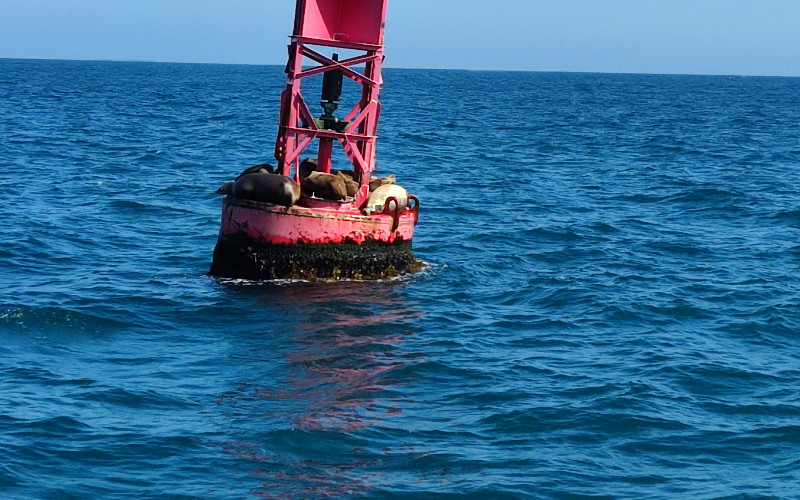Our methods

The modalities
Performing activities does not necessarily generate value, something more is required of us.

Logic
We do not think we create value for the customer by offering pre-packaged packages.

The focus on quality
Constant evaluation of opportunities to create Quality awareness.
Our Services

Consulting
Define and formalise the method adopted by the organisation to respond to the needs and expectations of the target market and to govern its processes in an organic and structural manner.

Training
Intellectual Capital, which is embodied in the People employed by organisations to offer their services and products, is the main factor that gives value to modern forms of enterprise.

Measurement Services
To carry out their activities, it is increasingly common for companies to have to prove compliance with certain requirements.
STUDY WITH US
Our safety courses

Health and Safety at Work courses: E-learning
Delivery in e-learning mode on the ACTAEdu platform, in compliance with the provisions of Article 37 of the Legislative Decree. 81/08 and by the State-Regions Agreement of 21/12/2011 and 07/07/2016

Health and Safety in the Workplace courses: Attendance/FAD
Delivery of the course in person , to be carried out in the classroom or at the client's premises. Alternatively, where applicable, in FAD mode.
STUDIA CON NOI
I nostri corsi sulla sicurezza

Corsi in materia di Salute e Sicurezza sui Luoghi di Lavoro: E-learning
Erogazione in modalità e-learning su Piattaforma ACTAEdu, in ottemperanza a quanto stabilito dall’Art.37 del D.lgs. 81/08 e dall’Accordo Stato Regioni del 21/12/2011 e 07/07/2016

Corsi in materia di Salute e Sicurezza sui Luoghi di Lavoro: Presenza/FAD
Erogazione del corso in presenza , da realizzarsi in aula o presso il cliente. In alternativa, ove previsto, in modalità FAD.
STUDY WITH US
Our management courses

Being effective in interpersonal communication - basic course
- Interpreting communication as a process;
- Keeping critical components under control;
- Ensuring effectiveness in the course of its management.

Being effective in interpersonal communication - advanced course
- Improving the control of communicative processes;
- Harmoniously integrate the three components of the communication process;
- Ethically use the tools of persuasive communication.

Communicating effectively with the body
- Communicate effectively with the body
Develop awareness of its relevance in communicative processes; - Develop the skills of reading and interpreting body language;
Integrate this component into communication skills.

Public speaking for managerial roles
- Focusing on the critical elements of public speaking;
- Know how to structure a speech;
- Being effective in interviews, crisis situations, communicating externally.

CV writing and the job interview
- Analyzing a job ad and responding effectively;
- Holding a job interview successfully;
- Know how to interpret a job ad Locate the main sources of job opportunities.

The management of internationalization processes - basic course
- Understand what is meant by internationalization;
- Analyze the different ways of presenting oneself in foreign markets;
- Develop awareness of the risks and opportunities of doing so;
- Identify the impact of internationalization on business processes.

The management of internationalization processes - advanced course
- Place the choice to internationalize within the framework of business strategy;
- Guide the choice of target country;
Identify the most effective ways to internationalize; - Know how to draft an International Marketing Plan;
- Know how to identify domestic and foreign institutional interlocutors, as well as forms of support for internationalization.

Introduction to business strategy
- Understand the importance of strategy;
- Identify the supporting phases of a strategy cycle;
- Know how to communicate strategy inside and outside the company.

The definition and management of business strategy
- Identify the supporting activities of the strategy process;
- Understand the decision-making processes underlying strategy formulation;
- Analyze the directional life cycle and its components;
- Develop the skills for defining and managing a Strategic Plan.

The structured management of the SME
- Develop awareness of the ineffectiveness of “on sight” business management;
- Formalize the business management cycle by adapting it to the SME;
- Introduce some structured governance tools into the operational management of the SME;

Introduction to neuroscience for management roles
- Understanding the functioning of our brain in decision making processes;
- Understand the role of emotions in business management;
- Use this knowledge for the effective management of human relations.

Neuromanagement and Neuroleadership
- Recall the neuroscientific mechanisms underlying decision making;
- Understand the factors that enhance and threaten relational effectiveness;
- Be aware of cognitive biases and heuristics.

Neuromarketing: how our brains choose!
- Recall the concept of marketing and its basic components;
- Analyze from a neuroscientific perspective decision-making processes and buying behaviors;
- Understand the mechanisms underlying some business successes and case studies.

Emotional competencies in managerial roles
- Understand the importance of emotions in human behaviors;
- Recall how our brains function in relation to emotions;
- Develop awareness in the ethical use of emotions.

Emotional intelligence: a soft skill that improves the quality of life
- Understand the role of emotions in human behaviors;
- Develop the ability to “use” emotions in strategic matters;
- Analyze some techniques for enhancing Emotional Intelligence.

The 4 intelligences behind effective business management
- Understand and define Emotional Intelligence, Cultural Intelligence, Rational Intelligence, Ethical Intelligence;
- Analyze some methods and techniques for their development;
- Examine how these skills underlie effective relationship management and leadership.

Introduction to Cultural Intelligence
- Understand and define Cultural Intelligence;
- Develop an awareness of the importance of culture in behavior;
- Analyze some cultural characteristics

The development of cultural competence in international relations
- Recall the characteristics of Cultural Intelligence and the importance in cross-cultural behaviors and relationships;
- Analyze some cultural dimensions (e.g., time, decision making, high and low context languages, body language…)

FIRST Emotional competence pill: fear
- Recall the importance and role of emotions;
- Analyze fear in its different manifestations;
- Developing skills to accommodate and use such emotion strategically.

SECOND Emotional competence pill: the error
- Recall the importance and role of emotions;
- Analyze the role of error and recurring dynamics;
- Develop skills to accommodate and use error strategically.

THIRD Emotional competence pill: gratitude and empathy
- Recall the importance and role of emotions;
- Analyze the role of gratitude, empathy of their impact on the quality of life;
- Develop skills for the development of such organs of higher perception;

The effective management of working groups
- Analyze the team concept and its characteristics;
- Identify the recurring roles of members and their value in the team;
- Recognize the occurrence of conflicts and know how to apply ways to resolve them.

Methodologies and techniques for negotiation - basic course
- Develop awareness of the importance of negotiation skills;
- Know how to structure a negotiation process;
- Identify strategic levers and recurring errors in negotiation

Methodologies and techniques for negotiation - advanced course
- Recall the recurring activities of a model for governing a negotiation process;
Knowing how to integrate different skills (communication, emotional and cultural) to create value; - Strategic levers to increase negotiation effectiveness;
- Recurring mistakes and dirty tricks (unethical behaviors) in negotiation.

Negotiating in the world: methodologies and techniques for cross-cultural negotiation
- Recall the importance of culture in behavior;
Develop awareness of the importance of Cultural Intelligence; - Analyze a possible methodology for the effective management of cross-cultural negotiation processes;
- Some cultural behaviors in negotiation processes.

Emotional geography: historical, mental and emotional territories
- Recall the role of emotions;
- Interpreting the concept of emotional mapping;
- Representing emotional territories and landscapes based on subjective emotional perception.

Acta Logica di Progetto
Constant evaluation of opportunities to create Quality awareness.
More information on our services?
 Partner nella creazione di valore!
Partner nella creazione di valore!


